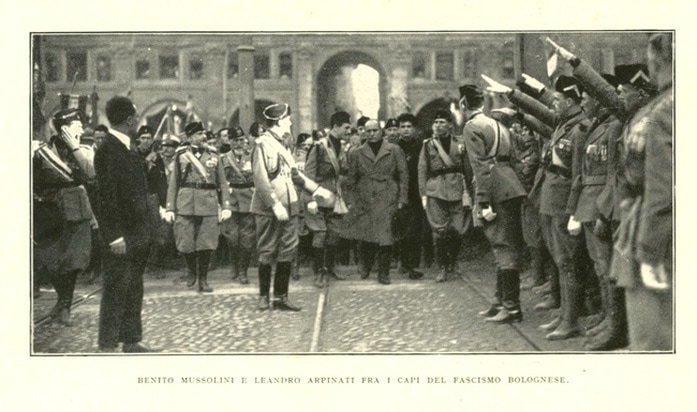Italian football has had its fair share of scandals over the years, from the Totonero betting scandal that rocked the game in the early 1980s to the infamous Calciopoli mayhem of 2006. The early days of Calcio weren’t too pretty either.
In 1927, FC Torino lifted their first Scudetto after finishing above Bologna and Juventus, or so they thought. However weeks after the season ended, news of a possible scandal broke which called into question the validity of Toro’s triumph. At the centre of these rumours was one particular match, Torino’s 2-1 victory in the Derby della Molle against Juventus. Milan based newspaper ‘Lo Sport’ speculated as to whether Juve’s left-back Luigi Alemandi had been bribed by Granata official, Dr Nani, to guarantee a derby victory for Toro.
It was alleged Allemandi was due to receive 50,000 lire for his troubles however ironically the defender was one of the Bianconeri’s standout performers during the game and thus Dr Nani refused to pay him the full sum of money. This purportedly led to the scandal being exposed as the two men were overheard disputing the payment amount. Despite a lack of concrete evidence proving any corruptive malpractice, FC Torino were stripped of their Serie A title. Whilst documenting the scandal on his blog, Torino supporter Rob Gilman wrote:
…it’s believed Dr Nani acted independently of both the club and the President in his attempt to bribe an opposition player. This raises the question whether the players and fans of Torino should have been punished because of the actions of one ‘maverick’.
Irrespective of this, Torino were punished but more controversially the man who made the final decision to strip Torino of their first Scudetto was Leandro Arpinati, head of the Italian Football Association (Italiana Giuoco Calcio) and president of runners up Bologna.
Arpinati was an Italian Politician and no stranger to controversy. Born in 1892 he spent the early part of his life in his hometown of Civitella di Romagna, where he dabbled in politics with his good friend Benito Mussolini. Arpinati would head for Bologna in 1914 and in 1920 he set up the city’s second Fascist group, of which Mussolini became a member.
Bologna’s Piazza Nettuno and famous Piazza Maggiore were battlegrounds in the late 1920s as trouble flared between the Fascists and the Socialists. Arpinanti played an integral role in the Fascist cause and he was eventually named Vice-Secretary of Italy’s National Fascist Party (Partino Nazionale Fascista), run of course by Arpinati’s good friend, Benito Mussolini. Following the Marcia su Roma (March on Rome) – by which Mussolini’s National Fascist Party came to power in Italy – Arpinati’s political career really took off.
As Fascist Italy entered the 1930s, Arpinanti became heavily involved in sport, initially as president of the Italian National Olympic Committee followed by his appointment as the head of the Italian Football Federation (Italiana Giuoco Calcio). It was during this role that the politician stamped his authority over the game. On a national level, Arpinati would reform Serie A, making the 1929-30 season the first round robin style tournament. Unsurprisingly, the Fascist regime’s beloved Bologna dominated during this period, winning the newly structured competition four times in its opening five years.
Given a 3.5m Lira budget by Mussolini’s government, Arpinanti was also charged with organising 1934 World Cup finals held in Italy, much to the delight of football fanatic Mussolini who used the tournament as a chance to promote and showcase Fascist Italy throughout the world.
Off the field however, Arpinanti’s political life and friendship with Benito Mussolini were about to come to an abrupt end, with the regimes secretary Achille Starace claiming Arpinanti was anti-Mussolini. This saw see him charged as an enemy of the regime.
With World War Two in full swing, Mussolini offered Arpinanti an olive branch of forgiveness. With the Allied forces taking over Southern Italy, the Italian dictator offered his old friend the chance to join the Repubblica di Salo (a Nazi German state created in Northern Italy) but Arpinanti would reject Mussolini’s offer.
Arpinati’s controversial life would come to an end at the age of 55. In 1945, just two days after the Allied forces had taken over Bologna, he was hunted down and killed by a group of Communists in Argelato, just outside of Emilia Romagna’s capital.
A controversial character indeed, Leandro Arpinati, changed the face Italian politics and Serie A immutably. He not only denied Torino a historic Serie A title but also played a part in ensuring that the late 1930s undoubtedly belonged to Bologna, one of Calcio’s earliest powerhouses.

